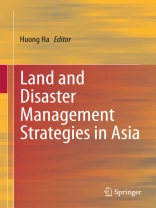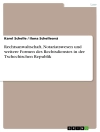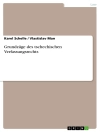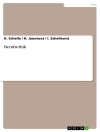This book focuses on land and disaster governance in Asian countries. The Asian region has become increasingly vulnerable to natural disasters, including floods, cyclones, storms, earthquakes, drought, typhoons and tsunamis. Further, as a result of unsustainable changes being made in patterns of land use, catchment and coastal zones, increasing population density, migration patterns, and the spread of consumer culture across countries, the impact of natural disasters has increased manifold. The book addresses two major concerns in this field. Firstly, it discusses topics intended to raise awareness among all stakeholders of the critical aspects of disaster management in the context of Asia. Secondly, it calls upon policymakers, researchers, academics, practitioners, private enterprises and civil society organizations, as well as all those who have been, are and will be affected by natural disasters to search for innovative and novel approaches to reducing risk and managing disasters.
Mục lục
Chapter 1. Land Use and Disaster Governance in Asia: An Introduction.- Chapter 2. NAPSIPAG Is Ten Years Old: An Agenda for the Next Decade.- Part I: Land Management and Food Security .- Chapter 3. Land Reforms in Kerala – An Aid to Ensure Sustainable Development.- Chapter 4. The Indian State and the Unfinished Task of Land Reforms: A Critical Analysis.- Chapter 5. Cacophony to Euphony: Land Tenure System and Food Security in Pakistan.- Chapter 6. Industrialisation and Sustainable Food Security: New Challenges for Malaysia.- Part II: Disaster Management .- Chapter 7. Bangladesh: Natural Disaster Risk Management.- Chapter 8. Administrative Planning and Political Response to Hazard: Issues and Concerns.- Chapter 9. Deficiency of Disability Issue in Disaster Risk Reduction Strategy: Implications on Human Security and Social Cohesion.- Chapter 10. Geo-Politics and Community Vulnerability: A case of Diu Island.- Chapter 11. Lack of Integrity moving the Goals Away.- Chapter 12. Anticipating and Managing an Unwelcome Guest: Climate Smart Approach in Disaster Management.- Part III: Public Education and Other Issues Related to Disaster Management .- Chapter 13. Disaster Risk Management and Public Education in Singapore.- Chapter 14. Participatory Environmental Governance and Climate Change Adaptation: Mainstreaming of Tidal River Management (TRM) in South-West Bangladesh.- Chapter 15. Ecology and Culture: Innovative Approaches to the Educational System of Indigenous People of Altai.- Chapter 16. Peacebuilding Model in Diverse Conflict Lines Southern Philippines.- Chapter 17. Community Governance for Climate Change Adaptation in Nepal.- Chapter 18. Land Use and Disaster Governance: Implications and Policy Recommendations.
Giới thiệu về tác giả
Dr. Huong Ha is the Academic Coordinator of MBA and undergraduate business programme at UON Singapore (University of Newcastle, Singapore campus). She was the Dean of TMC Business School and Director of Research and Development, TMC Academy (Singapore). She obtained her Ph D in management from Monash University (Australia) and a Master’s degree in public policy from Lee Kuan Yew School of Public Policy, National University of Singapore. She was a recipient of a Ph D scholarship awarded by Monash University, a Temasek scholarship awarded by the National University of Singapore and a scholarship awarded by the UN University/International Leadership Academy, and many other professional and academic awards. She has been an invited member of editorial boards of many international journals; on scientific and/or technical committees of several international conferences; and on international advisory board of many associations. She has also been a reviewer of many journals and international conferences.












